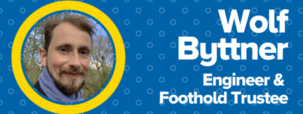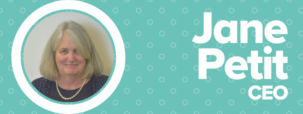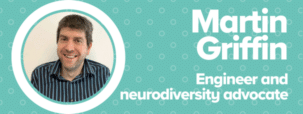Sign up to our mailing list to receive expert advice to help you improve your financial, mental and physical wellbeing, so that you can live well every day. We'll also send you the latest news and updates, and information on how you can get involved with Foothold and support the engineering community.


Stuart’s story of living with autism spectrum disorder and getting a diagnosis
Learn how we helped Stuart get assessed and diagnosed with autism spectrum disorder.
“I think differently, my reactions are different, my ‘cause and effect’ is not the same as others’ – and that’s ok. I’m becoming increasingly comfortable with who I am, and the diagnosis is helping me understand my strengths and explain some of the challenges I’ve faced in my life.”
I’m Stuart, an engineer from Wilmslow, and I received a diagnosis of autism spectrum disorder in May 2022 at the age of 55.
Now that I know I am neurodivergent, when I look to my past it’s easy to see the signs that this has always been a part of me, which weren’t very obvious previously.
I had a very happy childhood – I was born and raised in Yorkshire, and was the youngest of 6 siblings. But when I was 7 years old my only grandparent, my grandma, died of cancer, and 6 months later my eldest sister left home. These changes shifted our family dynamic, and I can remember beginning to feel confused and frustrated.
Because I’m the youngest I was always coddled by my parents and siblings, and looking back these changes weren’t explained to me very well.
But knowing what I know now about my ASD, I think the communication differences and my responses to change played a key role in how I personally processed it. And these attributes continued to present challenges for me throughout my formative years.
Struggling to socialise and communicate
“I am a very capable person and growing up I was highly intelligent, always top of the class, but terrible at sports and being sociable. As the years passed, I found that I struggled to gel with people.”
I had a small group of friends growing up, but I always felt different and would withdraw to spend time alone.
I liked my friends, but I was aware that I sometimes felt uncomfortable in the group, and as though I never truly belonged. I also experienced bullying at school, which was awful to go through.
I’ve always been a very precise, factual person too, and this can pose a challenge when I interact with others who communicate differently to me.
For example, whilst studying for my A levels, I remember a teacher asked us to draw a ‘roughly straight line’. To me, this is simply not possible – the line is either straight or it’s not, and I found that frustrating.
People would often misunderstand my communication style, and this sometimes caused conflict that would affect my relationships with family, friends and colleagues.
These challenges in socialising and communicating with others really came to the fore when I set up my own consultancy in 2006.
I soon found that whilst I could accomplish any projects that I collaborated on with clients, what proved really challenging to me was winning that work in the first place.
I found it difficult to navigate the social complexities of networking, building relationships and selling myself to potential clients.
I struggle to find my space to talk in a group conversation.
How my experiences affected my mental health
On reflection I can now see that these experiences pointed to the fact that I have always been autistic, and that autism has played a prominent role in the mental health challenges I’ve faced throughout my life.
“I struggled with my mental health for a long time, but it was in September 2020 when things finally reached breaking point. I had a huge panic attack, and started harming myself. I still struggle to understand what happened that night. I was admitted to a mental health unit for a month, before finally returning home that October.”
I wasn’t in a good place at all. Everything was overwhelming. Just the thought of having to do something as simple as writing a shopping list felt too much.
I spent nine months hiding away from the world, feeling unable to engage with anyone.
Finding some answers with Foothold’s support
One day I was talking to a friend about how I was coping, and she asked me if I’d considered that I might be autistic.
This prospect had never even crossed my mind before. But it inspired me to do some research, and as I looked into autism further it was like a lightbulb had switched on in my head.
I remember thinking: ‘aha, this could explain some things!’.
I arranged an appointment with my GP to talk through it further, but there was a two-year waiting list on the NHS, and to make matters worse they weren’t actually accepting anyone at that time.
Given the cost of going private, I felt like going through the NHS was my only option to get some answers, so I’d all but given up when I happened to mention it to my Foothold caseworker during a catch-up phone call in January 2022.
And, to my surprise, she said that Foothold would consider funding a private assessment for me.
So, I submitted an online application, and was delighted when I received some funding to help me get a formal assessment. I was able to choose a local assessment centre, and I took a friend with me on the day.
She said that the look on face was a picture when they confirmed I had autism spectrum disorder. It really was a huge weight lifted off my shoulders as they talked me through my test results.
Coming to terms with my diagnosis
However, my initial relief at receiving the diagnosis was quite short lived, and within a week the euphoria had turned to despair.
Ok, so I had the diagnosis, but what should I do next?
“The months since receiving my diagnosis have been a gradual process of understanding and accepting. I’m quite happy now to let people know I am on the spectrum, and to try and help them understand what that means for me.”
When I tell people who know me well, they aren’t surprised and it’s almost like everyone else knew before I did!
I have enjoyed learning all I can about autism spectrum disorder, and I’m fortunate that I have the support of my therapist and one of Foothold’s befriending volunteers, Tania.
Now, instead of focusing on my past and wondering why I felt different or misunderstood, I can look to the future, and how my knew-found knowledge of myself will help me get the most out of my relationships and the world around me.
At times during my journey of discovery I’ve felt very alone, but knowing that I have people I can turn to and who won’t judge me has made a world of difference.
I would encourage anyone who is coming to terms with a diagnosis of neurodivergence to reach out to someone and talk about it if you’re struggling.
As I’ve learned, it’s nothing to be ashamed of – it’s just part of what makes you wonderfully unique.
Start #EngineeringYourWay today
If you’re struggling with autism or autism symptoms and it’s affecting your day-to-day life, we might be able to help. To find out more about our Engineering Neurodiverse Futures support programme, join our Differently Wired Hub for free today.
SUPPORT FOR YOU AND YOUR FAMILY, STRAIGHT TO YOUR INBOX
![Newsletter CTA Banner Graphic [UPDATED] An image showing someone's hands holding a mobile phone. The phone is displaying a version of the Foothold monthly newsletter.](https://www.myfoothold.org/app/uploads/2023/07/Newsletter-CTA-banner-graphic-UPDATED.png)
Blog

Blog: Wolf’s tips for succeeding in the workplace as a neurodivergent engineer
Wolf’s top tips for overcoming challenges of neurodiversity in the workplace: meeting deadlines, keeping track of tasks and written communications

Winter Warmth Network: Support for UK families struggling with energy costs
Our CEO Jane explains how Foothold has connected with the Winter Warmth Network to enable our community to get the right support this winter

Neurodiversity at work: How leaders and managers can support neurodiverse staff to thrive
Neurodivergent engineer Martin shares his some top tips to help leaders empower neurodiverse colleagues to thrive at work.